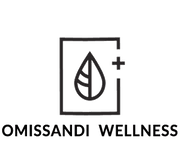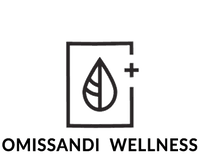
Your body is designed as a highly complex and perfect system, where in its natural (undamaged) state all the elements work together, allowing you to function as a healthy human being.
Your digestive system alone is an incredibly intricate structure, where several digestive “ingredients” must collaborate so that the food you eat can travel through roughly nearly 30 feet of digestive tract (a process that can take nearly 24 hours) and the nutrients can be broken down and absorbed properly in order to benefit the body.
Digestive enzymes [1] are crucial in this process. Especially when combined with other important “ingredients” like probiotics, enzymes can help us maintain a healthy digestive system, which is extremely important for our overall health. If you’re curious about digestive enzymes vs. probiotics keep reading!
What Are Digestive Enzymes?

Digestive enzymes are proteins, produced in the body, which act as catalysts, breaking down food molecules into their smaller molecules so that they can be easily absorbed into your bloodstream. Your mouth, stomach, and small intestine produce some digestive enzymes [2].
However, the majority come from your pancreas, which floods the small intestine with enzymes upon the arrival of food there. Digestive enzymes fall into three main categories:
- Protease enzymes: which break down protein into peptides and amino acids.
- Amylase enzymes: which break down carbohydrates by converting starch into simple sugars that your body can absorb.
- Lipase enzymes: which break down the fats in foods for optimal absorption.
How Do Digestive Enzymes Work?
Your gastrointestinal fluids contain digestive enzymes, which are released in the saliva when you chew food. The body knows which type of enzymes to release to help it digest and absorb different types of food.
Specific enzymes act on particular nutrients: fats, carbohydrates, and proteins. Digestive enzymes are absolutely essential because they convert complex foods into amino acids, cholesterol, fatty acids, simple sugars, and nucleic acids (which help make DNA).Enzymes are synthesized and secreted in different parts of your digestive tract, including your mouth, stomach and pancreas.

The digestive process consists of six parts, starting with chewing the food, which triggers the salivatory amalyse to break down starches and fat, preparing them for the long trek through your body. Then when the food reaches the stomach, the pancreas is triggered to release numerous pancreatic enzymes like lipase, amylase, trypsin, and nuclease.
If the body doesn’t produce enough digestive enzymes, we have difficulty breaking down foods, digestion slows down, and we experience uncomfortable symptoms. For example, do you know anyone who is lactose intolerant?
This means simply that they are deficient in the enzyme called lactase, which breaks down the sugars present in milk and dairy products. Without lactase, the undigested lactose goes to the colon, which leads to gas produced by bacteria in the colon, creating bloating and diarrhea.
Many of us are enzyme deficient due to pollution in the environment, processed foods, various health conditions, genetics, and aging. Especially in such cases, supplementation is necessary to aide digestion and prevent malnutrition [3].
Digestive Enzymes vs. Metabolic Enzymes
While digestive enzymes are essential for optimal digestion and absorption of nutrients, metabolic enzymes are essential for optimal cellular function and health. There are over a thousand different enzymes found in the human cell.
Metabolic enzymes help regulate metabolic pathways in energy homeostasis. They are essential for detoxification and energy production. They enable us to see, hear, feel, move and think. Every organ, every tissue and all trillions of cells in our body depend on the reaction of metabolic enzymes and their energy factor.
Metabolic enzymes catalyze and regulate every biochemical reaction that occurs within the human body. Our bodies naturally produce both digestive and metabolic enzymes, and both are completely essential to our existence.
How Can You Get More Enzymes?
Raw, unprocessed foods contain all the enzymes necessary for you to digest that food and absorb its nutrients. Nature cleverly designed these food items, which come not only packed with the nutrients we need, but also assist the body with enzymes to help the body digest and reap the benefits of being able to absorb its nutrients.

Processed foods, however, contain no enzymes. Heat exposure destroys them. Here is a list of raw foods that contain essential digestive enzymes:
- Raw (Unprocessed) Honey and Bee Pollen
- Organic Fruits (ripe bananas, papaya, mango, pineapple, kiwi, avocados)
- Fermented Foods (sauerkraut, yogurt, kefir, miso or soy sauce)
- Ginger
- Wild Edible Mushrooms
- Coconut water
In addition, digestive enzymes supplements are a safe bet. Usually they are derived from plants, fruits, fungi, and animal livers. The best digestive enzymes differ from person to person, since various enzymes help process different types of food, and each of us may be deficient in different types of enzymes or experience different ailments.
Pancreatin, derived from the pancreas of a hog or ox, is known for its inflammatory properties. Pepsin will help process proteins.
Vegetarian enzymes are naturally derived and are said to be the most potent in that they can break down more fats, proteins, and carbohydrates, in a broader Ph range than any other source – for this reason, often they are preferred over the rest.
What Are Probiotics?
Probiotics are microorganisms (live bacteria or yeasts), which also aid digestion in a significant way. They often are referred to as the “good” bacteria, which compete for territory in the gut with the “bad” bacteria.
This complex community of microorganisms is called the microbiota. Maintaining a healthy balance of micobiota in the gut is essential to proper digestion and has loads of health benefits.

How Probiotics Work
Many of us have damaged our bacterial system through stress, unhealthy diet, popular medications, and antibiotics. When we repopulate our guts with billions of “good” live bacteria, they help keep the bad bacteria under control by colonizing and leaving less room and food in the gut for bad bacteria.
Therefore, they help prevent disruptions, such as poor absorption of water and nutrients, constipation, or diarrhea. When your gut microflora population remains in balance, they can perform numerous essential functions in the digestive system and have a wide range of health benefits.
How Can You Get More Probiotics?
In the past people consumed plenty of probiotics in their diet from fresh foods derived from good soil. Food also was fermented to keep from spoiling. Today that isn’t so. By and large our diet now contains significantly fewer probiotics due to processed foods and bad agricultural practices.

In addition, some foods actually contain antibiotics, which have the opposite effect: they destroy the good bacteria in our bodies. However, it is still possible to get some probiotics from food by including the following in our diet:
- Yogurt
- Kefir
- Traditional Buttermilk
- Some cheeses, such as Farmers Cheese
- Miso
- Sauerkraut
- Kombucha
- Natto
- Kvass
Also, supplementing may be a good idea. Make sure to find a high quality potent probiotic will billions, rather than millions, of good bacteria, proven to survive in the warm acidic environment of the stomach, and a high colony forming unit (CFU).
Is There a Difference Between Probiotics and Digestive Enzymes?
While both probiotics and digestive enzymes help digestion and increase immunity to diseases, they are in fact different things, with different functions in the body.
Probiotics aren’t produced by the body like enzymes are, so they must be consumed through the diet or supplemented. While enzymes help to break down food molecules, probiotics are living bacteria that help to control the bad bacteria that enters the system.

Are There Benefits to Taking Probiotics and Digestive Enzymes Together?
Absolutely! Certain probiotics even produce digestive enzymes, and there are many foods that contain both, including kefir and fermented vegetables. Taking both in the form of supplements will boost your digestion and make your gut happy.
While digestive enzymes will help you break down food and absorb its nutrients, the probiotics will create a natural protective layer of bacteria.
When Should You Take Digestive Enzymes and Probiotics?
It’s best to take digestive enzymes as you start eating to maximize the enzymes’ time of being in contact with food. If you do a lot of snacking, or if you eat frequently, you may want to take the enzymes at fixed intervals, for example every 4 or 5 hours.
Probiotics too should be taken during a meal and never first thing in the morning! Probiotics are live microorganisms, and they need food and water to survive. Also, while you eat your pH level rises, creating a less acidic environment for the probiotics to make it safely through the digestive tract and into the gut.
Additionally, probiotics should never be exposed to high heats as this can kill off the live cultures. It is for this reason that the Dr. Stern Rebalance Probiotic is always stored in a climate-controlled warehouse. I believe that this has a lot to do with why many of our customers see such great results with it. If you are not already taking it, go ahead and give it a try.


